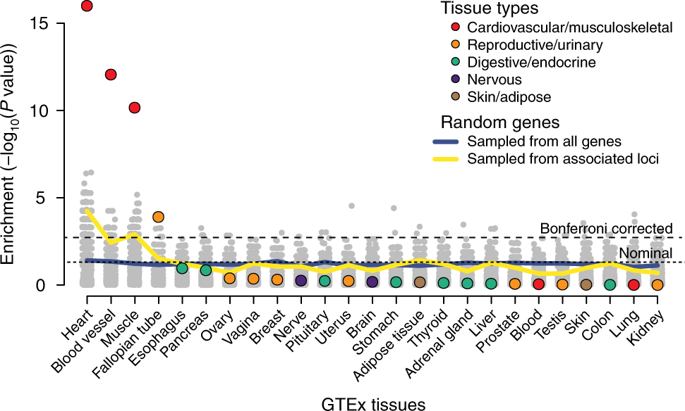By the K.G. Jebsen Center for Genetic Epidemiology
A collaboration between several institutions, including the Norwegian University of Science and Technology (NTNU), the University of Michigan Medical School, Geisinger and Regeneron, and deCODE Genetics/Amgen in Iceland, has resulted in surprising results linking atrial fibrillation in adults to fetal heart development.
The group studied an unprecedented sample size of over one million people, including over 60,000 individuals with atrial fibrillation, to discover over 140 genetic changes associated with this common, adult-onset cardiac arrhythmia. The results were surprising in that they identified a number of genes that control heart development in the fetus.
This could have important implications for future treatment and possibly prevention of atrial fibrillation.
Experiments in rabbits with induced heart failure showed that at least one of the fetal genes becomes active again in the damaged heart. Because the fetal genes have different rates of conduction of the cardiac electrical impulses relative to the adult form of the gene, atrial fibrillation is induced. This could have important implications for future treatment and possibly prevention of atrial fibrillation.
The group are hopeful that additional molecular biology experiments will determine how to create sustained regular heart rhythms by studying the genes they, and others, have identified.

Significance of the expression enrichment for the atrial fibrillation candidate genes.
They also found that for each individual, they could count the number of genetic changes that each person carries to predict which people are most at risk for developing atrial fibrillation in the future. This may have important implications for precision health and prevention of cardiovascular disease.
Another paper on atrial fibrillation was also published recently in Nature Genetics and we look forward to bringing these two collaborative groups together to generate an even larger study for the benefit of those afflicted by atrial fibrillation.
Read the full article in Nature Genetics.
